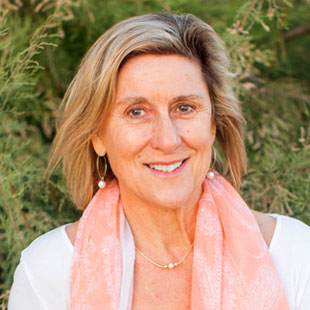 By Petra Beumer, founder of the Mindful Eating Institute
By Petra Beumer, founder of the Mindful Eating Institute
As a counselor who specializes in mindful eating and emotional self-care, I come across the need for resting, downshifting and finding inner peace when clients first share their challenges and life stories with me.
Often exhausted and burnt out, they have reached for food (or drink) to take the edge off, numb and cope with external stressors in their lives.
As a culture, we have subscribed to a way of life that’s fast and furious, and often quite stressful. To quote Brené Brown: “It takes courage to say ‘yes’ to rest and play in a culture where exhaustion is seen as a status symbol.”
So, how does mindfulness come in? How can we jump off the hamster wheel and honor our energy levels regularly? What are some “non-negotiable” behaviors and rituals that contribute to a well-balanced life?
Being mindful means being present and aware, moment by moment. Being intentional about how and what we eat, how we arrange our day, how we set healthy boundaries, what we feed our mind and how we relax our nervous system.
Mindfulness and emotional self-care go hand in hand. When we are mindful of our emotional needs and take good care of our hearts, we can assess what we need to add to our lives and what to let go.
Great tools for the mindful self-care toolbox are:
Bookend your day. Start your day by setting an intention, for example: “May I be gentle with myself and others today.” “May I honor the need for rest and downtime.” “May I nourish myself well.” At night, list three things you are grateful for and three things you are proud of.”
Take mini-breaks. Make sure you schedule short and reliable periods of restoration throughout your day.
Question urgency. The ‘ping’ tones of incoming texts or emails may sound urgent, but are they?
Plan for rest and play. Book a fun and joyful activity for yourself and/or your loved ones once a month. That way you have something delightful to look forward to.
Unplug. Don’t watch the news before going to bed. Eat at the dinner table instead of watching TV or browsing the web.
Share your heart. Do something nice for someone else. Happiness researchers find that it shifts your sense of wellbeing.
Check in with your body. How are your energy levels? Where and how do you know that you have reached your max? Honor that.
Being mindful means bringing your awareness to the present moment, over and over again. Eckhardt Tölle says: “Most people treat the present moment as if it were an obstacle that they need to overcome. Since the present moment is life itself, it is an insane way to live.”
I believe that being more present can be a great soother and comforter. Ruminating about the past can cause depression and tensing about the future can cause anxiety.
Mindful self-compassion is another wonderful and highly beneficial emotional self-care tool. When you are suffering, talking to yourself as if you were soothing a small child is what I call: “Urgent care for the heart.”
The pandemic has challenged us in ways we couldn’t have imagined and has hopefully taught us the deeper meaning of life: Valuing true and meaningful connections, living from a place of love instead of fear and being mindful of our own wellbeing and the wellbeing of others. Hopefully, it has also taught us to slow down.
Blue Zones researcher Dan Buettner found nine longevity principles that centenarians all over the world have in common, referred to as the: Power 9®. One critical element is being mindful of “downshifting”, which can be interpreted as slowing down, pushing less, learning how to unplug and unwinding. Sounds simple enough, right? I recommend you schedule “downshift” breathers as 5-minute breaks several times a day. You may listen to a mindfulness meditation using one of the following apps: Headspace, CALM or UCLA Mindful.
Everything works better after a reboot—even us! Self-care starts with us and has many facets such as mindful living principles, self-compassion and loving-kindness. Self-care is not a luxury, but a necessity. As a colleague of mine stated: “Lessons in life come as a whisper, a yell or a two-by-four. Let’s listen to the whispers!”
I’d like to end with one of my favorite self-care quotes by young poet Brianna Wiest: “True self-care is not salt baths and chocolate cake—it is making the choice to build a life we don’t need to regularly escape from.”
From my heart to yours, take good care and go slow.
—Petra
About the Author
Petra Beumer is founder of the Mindful Eating Institute in Santa Barbara, California. She has a master’s degree in behavioral psychology and has helped thousands of clients make positive lifestyle changes. Petra has dedicated herself to empowering clients to take better care of themselves, both physically and emotionally. To learn more, visit https://www.mindfuleatinginstitute.net.

